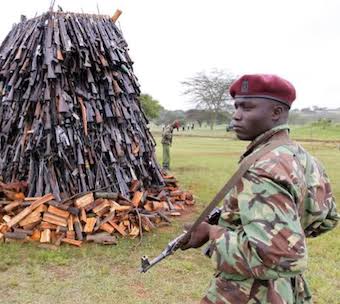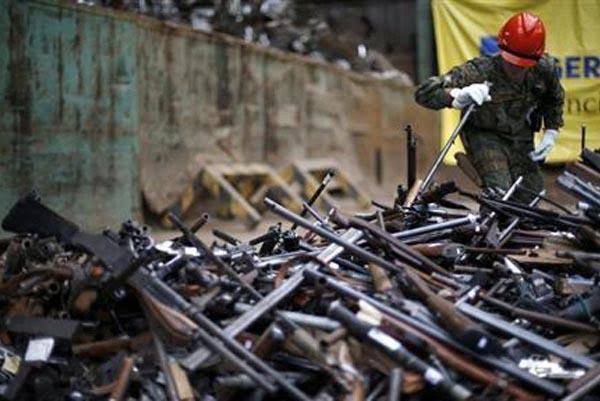“Lord of War,” directed by Andrew Niccol, is an interesting film that delves into the dark and morally complex world of international arms trade. Released in 2005, the movie follows the life of ‘Yuri Orlov’, a successful arms dealer navigating the global arms market with cunning and resourcefulness.
Keywords: Arms trade, International, Realism, Power, Security
Set in the context of real-world conflicts and political disputes, “Lord of War” explores themes of greed, power, and the consequences of unchecked arms sales. The film raises important questions about the impact of the arms trade on international peace, the global economy, and the ethical considerations surrounding this industry.
The purpose of this essay is to analyze the far-reaching implications of arms trade on the international economy, examining the concepts of defensive and offensive Realism in relation to the film. By critically examining the portrayal of the arms trade industry in Lord of War we can gain insights into the complex dynamics and consequences of this trade on global politics and security.

Arms Trade + International Economy
This type of trade makes up a significant aspect of global economics, involving the buying, selling, and transfer of weapons between actors. It influences international relations, security dynamics, and economic development. The movie provides a gritty portrayal of the arms trade industry, showing us the intricate networks of illicit dealings, and the role of actors like governments, corporations, and black markets.
The economic implications of arms trade are far-reaching because supplier countries benefit from arms exports: it stimulates their domestic defense industries, generates revenue, and creates employment. On the other hand, recipient countries face economic challenges due to portioning resources for military expenses instead of
development or social welfare. Corruption and the black market facilitate the arms trade and the film highlights how these illicit practices contribute to instability, violence, and the perpetuation of conflicts.
Regulating the arms trade requires considering numerous ethical challenges, including balancing national security interests with States’ responsibility to prevent human rights abuses and conflict in general.

Defensive Realism
From a defensive Realist perspective, Yuri Orlov’s motivations and actions in “Lord of War” can be understood as driven by the pursuit of national security and self-preservation. He capitalizes on conflicts and instability to profit from arms sales, aligning with the defensive realist logic of maximizing security. The trades portrayed reflect the inherent drive of states to enhance their defensive capabilities, both to deter enemies and for self-protection. The characters engage in arms deals to ensure their survival and the survival of their clients in a dangerous and volatile world.
They also explore the role of alliances and the balance of power in the arms trade. Strategic alliances and arms transactions shape the distribution of power among states, impacting the stability of regions and global security dynamics. While defensive realism provides insights into the motivations behind the arms trade, it also raises concerns about potential consequences and security dilemmas. Weapons can contribute to regional arms races, miscalculations, and conflicts, creating an insecure and unstable (anarchic) international system.
Offensive Realism
When analyzing the actions and behaviors of state actors in Lord of War through an offensive Realist lens, we can observe their relentless pursuit of power and dominance in the trade. The characters engage in aggressive competition, strategic maneuvering, and even illicit activities to gain an advantage over their rivals.
The arms trade in the film exemplifies the principles of offensive Realism. The characters are motivated by the quest for power, influence, and profit, using arms sales as a means to establish dominance and exert control in a highly competitive and ruthless international environment. Competition in arms races and the conflicts depicted in the movie show the impact of the relentless pursuit of military superiority, and the desire to outmatch adversaries which fuels the demand for advanced weaponry. This leads to a vicious cycle of arms circulation and potential escalation of conflicts. However, offensive realism also carries significant consequences and risks. The intense competition for power and dominance can lead to heightened tensions, arms build-up, and the potential for military miscalculations, which may inadvertently escalate conflicts and threaten international stability.

Comparison of Offensive and Defensive Realism in “Lord of War”
In comparing the types of Realism we can see the interactions between different motivations driven by self-preservation and national security (defensive Realism) and the pursuit of power and dominance (offensive Realism). The film showcases how economic interests, national security concerns, and power dynamics intersect in the arms trade. While defensive Realism focuses on securing one’s survival and protecting national interests, offensive realism emphasizes the pursuit of power and dominance to shape the international system.
“Lord of War” effectively portrays the complex and interconnected nature of the arms trade and its impact on international relations. It highlights how economic incentives, political motivations, and security considerations intersect, leading to a web of alliances, conflicts, and power struggles on a global scale.
Game Theory
Applying game theory to the actions and behaviors of state actors in the movie lets us observe a complex game of strategic calculations, where each player seeks to maximize their own power and influence while anticipating the moves of others. The arms trade becomes a game of strategy, where actors assess the potential gains and risks associated with their choices.
The pursuit of power, influence, and dominance depicted in the film aligns with the logic of Game Theory. State actors engage in a competitive game, strategically positioning themselves to gain advantages over their rivals in the arms trade. They consider factors such as market demand, pricing strategies, and the quality of weaponry to secure lucrative contracts and expand their spheres of influence. The arms trade in the movie also illustrates the impact of competition, arms races, and conflicts on strategic decision-making. As state actors observe the actions of their rivals, they adjust their own strategies accordingly, engaging in an arms race to maintain a competitive edge.
This game of competition and conflict drives the continuous proliferation of weapons and fuels the global arms trade. This theory also shows the potential consequences and risks associated with arms trade. The strategic calculations and rivalries can lead to a “prisoner’s dilemma” scenario, where mutual cooperation and disarmament may be the optimal outcome for all actors involved. Yet, the lack of trust, fear of vulnerability, and the temptation for short-term gains often hinder the achievement of such a cooperative equilibrium.
Conclusions
- Weapons will probably forever be a problem among humans in our personal and international relations because of their deep integration in the economy.
- The arms market plays a huge role in global politics and economics, with implications for both suppliers and recipient countries. It creates an intense economic interdependence and raises ethical concerns related to corruption, illicit financial flows, and the black market.
- Defensive Realism, as depicted in the film, emphasizes the pursuit of national security and self-preservation, driving the arms trade. It underscores the importance of alliances, the balance of power, and the potential security dilemmas associated with this perspective. Offensive realism, also explored in “Lord of War,” focuses on the pursuit of power, influence, and dominance. It reveals the competitive nature of the arms trade, with state actors engaging in strategic calculations and responding to rivalries, arms races, and conflicts.
- The arms trade in the film demonstrates the interplay between economic interests, national security concerns, and power dynamics. It underscores the complex and interconnected nature of the arms trade, highlighting the challenges associated with regulating this global industry.
- Economic implications of the arms trade, such as market demand, pricing strategies, and the proliferation of weapons, have far-reaching consequences for the global economy. The film emphasizes the need to consider economic interdependence when examining the impact of the arms trade on international relations.
- The film’s portrayal of the arms trade raises ethical considerations regarding the regulation and control of weapons sales. It makes us reflect on the balance between economic interests, national security, and the responsibility to prevent human rights abuses and conflicts fueled by the trade in arms.
References
- ChatGPT. (n.d.).
https://chat.openai.com/?model=text-davinci-002-render - Lord of War (2005) – IMDb. (2005, September
https://www.imdb.com/title/tt0399295/
OpenAI. 16). IMDb.

No responses yet